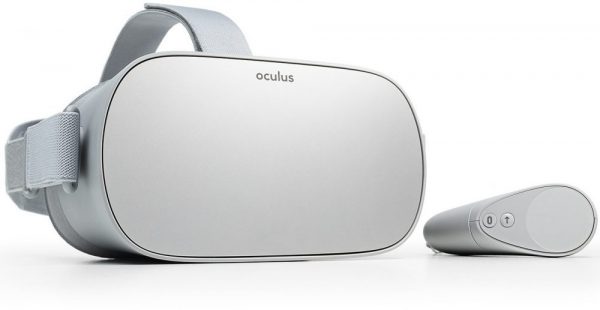Last year during Oculus Connect, the company took to the stage to announce its next virtual reality headset. It's called Oculus Go, costs $199 and aims to bring VR to the masses as an all-in-one solution, with no additional hardware required. We've known about this HMD for several months now, but little has been revealed in terms of performance. Fortunately, John Carmack seems more than willing to answer those questions.
The Oculus Go is essentially a competitor to other mobile VR headsets, like the GearVR. Under the hood, it is powered by a Qualcomm Snapdragon 821 processor, naturally making it more powerful than something like a Samsung Galaxy S7 plugged into a GearVR. However, the performance difference will be wider than expected, as the chip in the Oculus Go is solely dedicated to running VR apps, rather than an entire phone.
Tweeting about Oculus Go's capabilities, Carmack stated that it will be “significantly better” than a Galaxy S7 paired with a GearVR. He also added that the chip inside of the Go headset will use dynamic clock scaling set above the Galaxy S7's minimal levels. With that in mind, the Oculus Go should perform closer to something like the Snapdragon 845 powered Galaxy S8 when running VR applications.
Obviously when the Galaxy S9 launches, that could change. However, for the time being, it looks like the Oculus Go is going to be plenty powerful enough to run some decent virtual reality apps at decent, locked frame rates.
KitGuru Says: The Oculus Go headset is still expected to launch in Q1 2018, so we may end up seeing more of the headset before the end of this month. Do you guys think an all-in-one, competitively priced solution like the Oculus Go could succeed in widening VR's userbase?
 KitGuru KitGuru.net – Tech News | Hardware News | Hardware Reviews | IOS | Mobile | Gaming | Graphics Cards
KitGuru KitGuru.net – Tech News | Hardware News | Hardware Reviews | IOS | Mobile | Gaming | Graphics Cards



